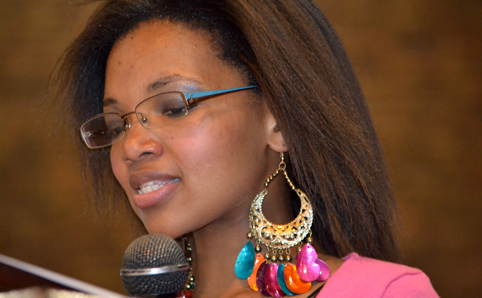Latest News Archive
Please select Category, Year, and then Month to display items
05 June 2018
Photo Supplied
 Archaeological excavations in the Wonderwerk Cave, north of Kuruman in the Northern Cape.
Archaeological excavations in the Wonderwerk Cave, north of Kuruman in the Northern Cape.
Research fellow Dr Lloyd Rossouw from the Department of Plant Sciences at the University of the Free State (UFS) recently published an article in the Nature Ecology and Evolution journal with Dr Michaela Ecker from the University of Toronto as lead author, and Dr James Brink, research fellow at the UFS Centre for Environmental Management. The findings described in “The palaeoecological context of the Oldowan-Acheulean in southern Africa” provides the first extensive paleoenvironmental sequence for the interior of southern Africa by applying a combination of methods for environmental reconstruction at Wonderwerk Cave, which have yielded multiple evidence of early human occupation dating back almost two million years ago.
Where water once was
The Wonderwerk Cave is found north of the Kuruman hills (situated in Northern Cape) a 140m long tube with a low ceiling. The surroundings are harsh. Semi-arid conditions allow for the survival of only hardy bushes, trees, and grasses. But during the Early Pleistocene, stepping out of the Wonderwerk Cave you would have been greeted by a completely different site, the researchers found. Using carbon and oxygen stable isotope analysis on the teeth of herbivores (Dr Ecker), fossil faunal abundance (Dr Brink), as well as the analysis of microscopic plant silica remains (phytoliths) excavated from fossil soils inside the cave (Dr Rossouw), the results show that ancient environments in the central interior of southern Africa were significantly wetter and housed a plant community unlike any other in the modern African savanna.
What difference does it make?
While East African research shows increasing aridity and the spread of summer-rainfall grasslands more than a million years ago, the results from this study indicate an interesting twist. During the same period, shifts in rainfall seasonality allowed for alternating summer and winter-rainfall grass occurrences coupled with prolonged wetlands, that remained major components of Early Pleistocene (more or less the period between one and two million years ago) environments in the central interior of southern Africa. That means our human ancestors were also living and evolving in environments other than the generally accepted open, arid grassland model.
Beyers Naudé challenge still stands – Dr Allan Boesak
2011-09-14
|

|
|
Dineo Babili, a first-year Foundation-phase Education student, reading out her winning essay during the final Beyers Naudé Memorial Lecture held last Friday. Dineo and Siphesihle Mavundla (poetry) both won R3 000,00 each from Kagiso Trust.
Photo: Thabo Kessah
|
The eighth Annual Beyers Naudé Memorial Lecture Series reached its climax with the third and last lecture being presented by Dr Allan Boesak at our Qwaqwa Campus on Friday, 9 September 2011. The first two lectures were presented by our Vice-Chancellor and Rector, Prof. Jonathan Jansen, and Prof. Kwandiwe Kondlo who heads our Centre for Africa Studies, respectively.
In his address, Dr Boesak posed hard-hitting questions, such as ‘'What kind of society do we want to be? At what price are we willing to sell the noble history of the struggle, the ideals and hopes of our people, the meaning of the freedom we sacrificed for?'’ He spoke fondly of his former friend and colleague who had appealed to the government of the day in 1973 to understand that the future security of our country did not lie with a consensus of white opinion, but rather ‘'a consensus of white and black opinion'’.
Dr Boesak said that Oom Bey had asked white people ‘to speak and act before it was too late’ and that he appealed to black people to prepare for the day on which they would be truly free.
‘'That was his hope. When he died, democracy had come, but this hope had not been realised and today we are in serious danger of losing it altogether. We have the matchless Freedom Charter; we have a most progressive Constitution; we have an impressive body of laws and we have enviable policy positions. However, the challenge from Beyers Naudé still stands and it comes to a new generation: it is time to transform words into deeds. The time for pious talk is over,'’ said Dr Boesak.
The lecture was well received by students and staff, as well as leaders and representatives from various sectors in the community. Learners and educators from a number of schools in the region also attended. Next year’s series will be hosted on the South Campus in Bloemfontein.